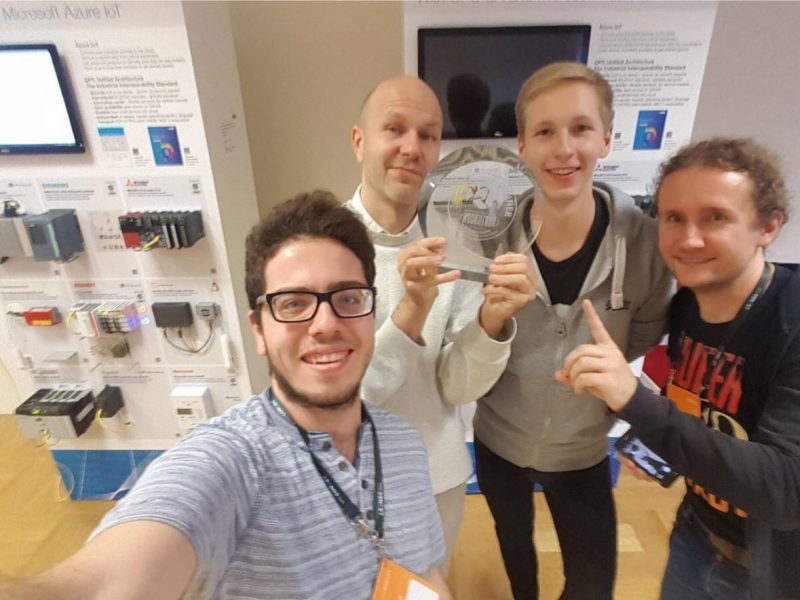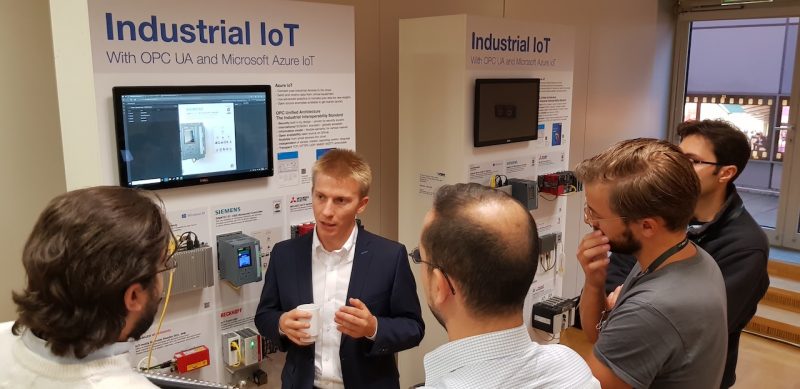When the OPC Foundation was asked by we.conect to take part in the first Industrial IoT Hackathon, we were very excited and jumped on board right away. The Hackathon took place ahead of the “4th Industry of Things World Conference” in Berlin. At the IIoT Hackathon, the participants needed to identify a real world problem and develop a solution within 24 hours. We were very happy to help in finding a state of the art solution by using OPC UA technology.
With more than half of the teams choosing OPC UA for transmitting current data from lacal devices to Microsoft Azure, we are very happy to see that the open source projects on GitHub, which have been provided by the OPC Foundation and Microsoft, allowed the participants to established a working communication within their tight time schedule. We’d like to introduce to you the 3 winning teams and their projects.
- “Smart H2O”
Did you know that a big percentage of the world’s population world doesn’t have easy access to clean water? Especially in small villages, this sometimes still is a big problem because the water quality can’t be observed by specialists as frequently as it should. This team developed a cost effective IoT Device for transmission of certain sensor data in order to allow short reaction time when the water quality gets bad. - “Mimi the Mimic”
This team developed a digital twin with real time video analysis for the transmission of the movement of a human to a robot. This allows robots doing one time movements in high-risk operation areas without putting humans in danger. - “SPVZR”
Their solution for a remote support system combines the transmission of real time data via OPC UA to the cloud, condition monitoring of a plant, and mapping it all to a virtual facility on the Microsoft HoloLense. This approach allows for on-site support from an expert without being there in person.
“When I was listing to preparations for the first Industrial IoT Hackathon, I was skeptical about whether someone who had just started with their first OPC UA project would really be able to get live data from multiple devices and move them to the cloud within 24 hours. The Hackathon has shown that OPC UA can be quickly handled as a plug-&-produce standard with integrated end-to-end security. For the hackers, this was an ‘Aha!’ moment. The teams were very enthusiastic about understanding the concepts, and have developed functional solutions to bring real-time data from devices to the Hololens glasses via the cloud. A special thanks goes to Alexander Allmendinger from the European OPC Test Lab for supporting this event onsite.”
Stefan Hoppe
Global Vice President
OPC Foundation
We gratulate all participants for the amazing results they accomplished within 24 hours of working. Just imagine what could have been done with a few days more… Also we’d like to thank Matthias Buchhorn-Roth of Microsoft and all the rest who helped in taking the lead and putting together such a great event, in which we definitely loved participating.

